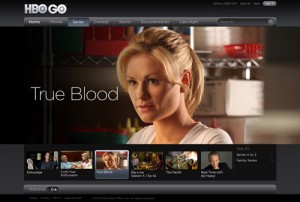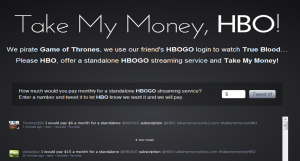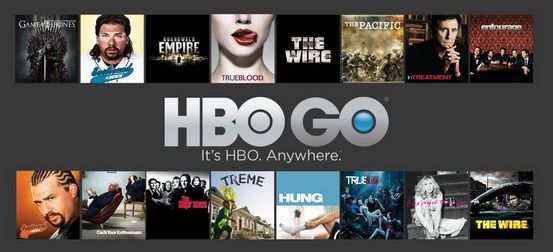With programming that reaches 29 million subscribers in the United States (Carter, 2012), Home Box Office (HBO) has hit pay dirt with its HBO GO website and mobile application. Launched in February 2010, HBO GO has revolutionized the way its customers receive its content. It’s apparent that HBO is in touch with what their viewers want. Not only does the pay-cable network continue to justify the additional cost to cable and satellite providers by delivering quality shows such as Game of Thrones and True Blood, but they’ve also expanded their reach through their streaming video (West, 2012). HBO GO can be accessed through various devices including the Apple iPad/iPhone, Android phones, and most recently, Kindle Fire. Additionally, with the hours of original HBO content, HBO GO also offers movies and other specials. With so much content available to paid subscribers through a multitude of ways, why has HBO resisted the recent cries by non-subscribers to access their application?
The average person would pay $12 a month, or about $145 a year, for online-only access to HBO content. But is that something HBO would be interested in?
HBO currently has about 29 million subscribers, and reportedly receives around $7 or $8 per subscriber per month. So HBO could, theoretically, get more per subscriber than it’s currently making. But that doesn’t include the cost of infrastructure needed to support delivery of all those streams, including all the CDN delivery and other costs that would come with rolling out a broader online-only service.
More importantly, it wouldn’t include the cost of sales, marketing, and support — and this is where HBO would really get screwed. Going direct to online customers by pitching HBO GO over-the-top would mean losing the support of its cable, satellite, and IPTV distributors. And since the Comcasts and the Time Warner Cables of the world are the top marketing channel for premium networks like HBO, it would be nearly impossible for HBO to make up for the loss of the cable provider’s marketing team or promotions.
Think about it: Every time someone signs up for cable or satellite service, one of the inevitable perks is a free six- or 12-month subscription to HBO. And those free subscriptions are rarely, if ever, cancelled once the trial period ends. What would happen if HBO no longer had the pay TV industry’s marketing team propping it up all the time? The results would be disastrous, and there’s no way that HBO could make up in online volume the number of subscribers it would lose from cable. Which is why, even though some users would actually pay more for access to HBO GO without all the other cable channels, you won’t see it show up as a standalone service anytime soon.
I would like to hear your thoughts on this. Considering the popularity of the Internet, do you think HBO is making a mistake by not welcoming the additional revenue from a standalone HBO GO service? Or should HBO continue to stand by their partnerships with the cable/satellite providers, even as their business model continues to be threatened by digital piracy, Hulu, etc.?




2 Responses to Take My Money, HBO! Why HBO Would Rather Support Digital Piracy Than Take Your Money